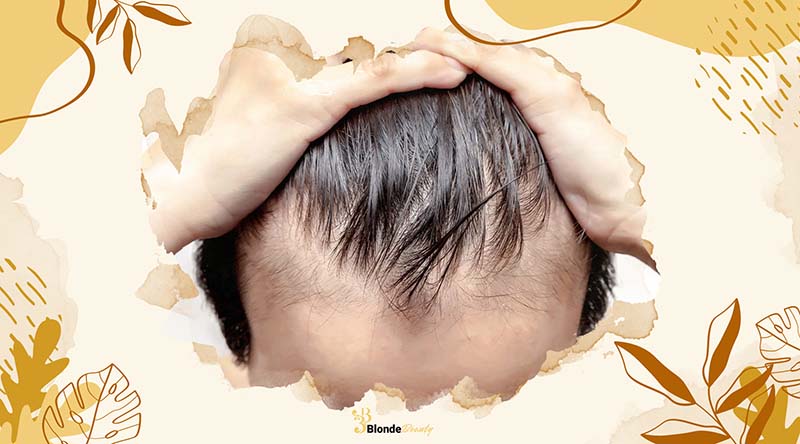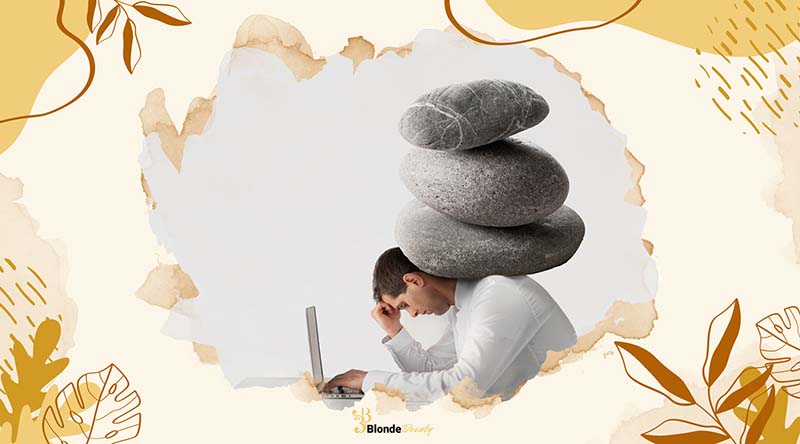Does testosterone make you go bald? This question taps into the widespread condition known as male pattern baldness, or medically, androgenetic alopecia, which impacts over 50 million men and approximately 30 million women, according to statistics from the National Institute of Health (NIH.gov). Despite its prevalence, hair loss can lead to significant distress and a decline in emotional well-being.
Testosterone, a crucial male sex hormone found in both men and women, plays various roles, including the development of male secondary sexual characteristics. There’s a common belief that fluctuations in testosterone levels, whether too low or too high, could lead to hair loss. However, is testosterone directly responsible for hair loss, or are there other factors at play?
This article explores the true causes behind testosterone-related hair loss and explores effective treatment methods.
You should also read the following articles:
- Does Green Tea Boost Testosterone? The Benefits of Green Tea.
- Is Coffee Bad for Testosterone? Hormonal Effects.
- Does Masturbation Cause Low Sperm Count? Unveiling Facts.
Does Testosterone Make You Go Bald?
High or low testosterone levels don’t directly cause balding; instead, it’s linked to how sensitive your hair follicles are, a trait determined by your genes. Hair loss happens when follicles shrink, leading to thinning until the growth cycle stops, and the follicle becomes inactive. This condition, called androgenic alopecia, affects both men and women but is more common in men.
Androgenic alopecia progresses through several stages, starting with the front hairline thinning and receding into an M-shape. Then, hair starts thinning on the top of the head, leading to crown baldness. Eventually, these areas converge, leaving only a U-shape of hair around the sides.
The biggest risk factor for androgenic alopecia is having a family history of the condition, not your testosterone levels. High testosterone levels can increase DHT hormone production, which can weaken hair follicles and cause hair loss. However, testosterone levels don’t determine follicle sensitivity to DHT. Some people genetically have more sensitive follicles, making them more susceptible to hair loss even with normal testosterone levels.

The Link Between Testosterone and Baldness
Understanding the connection between hair loss and sex hormones involves a complex interplay, where androgen hormones such as testosterone may influence the hair cycle and follicle structure.
However, the effects of androgens on hair growth vary depending on the body area. For instance, androgens typically stimulate hair growth on the face, armpits, pubic area, and chest, but they can inhibit hair follicles on the scalp.
In simpler terms, testosterone can promote hair growth in specific areas while restricting it in others.
Other Factors That Contribute to Hair Loss
Thinning hair and hair loss are concerns that affect many, with several contributing factors at play:
- Genetics: The role of genetics in hair loss cannot be understated. If your family has a history of pattern hair loss on either side, you’re more likely to experience it too. Genes can make hair follicles more sensitive to shrinking and thinning over time.
- Age: With aging comes a natural slowdown in hair growth. Many individuals will notice their hair follicles ceasing to produce new hair, leading to noticeable thinning, changes in hair texture, and even alterations in hair color.
- Nutrient Deficiency: A well-balanced diet is crucial not just for overall health, but also for hair health. Deficiencies in key micronutrients like iron, zinc, biotin, and magnesium can directly impact hair growth and recovery from hair loss disorders.
- Alopecia Areata: This autoimmune condition, although rare, causes the body’s immune system to attack its own hair follicles, leading to hair loss on the scalp and body.
- Pregnancy and Childbirth: It’s common to experience hair loss postpartum. The American Academy of Dermatology Association explains this as a result of dropping estrogen levels, though it’s typically a temporary phase.
- Medications and Treatments: Certain medications, including those for cancer and arthritis like Arava (leflunomide) and methotrexate, are known to potentially cause hair loss as a side effect.
- Hair Care Products and Styling: The chemicals in some hair care products and the heat from styling tools can damage hair. Practices such as dyeing and straightening can lead to dermatitis, chemical burns, or scarring, all of which contribute to hair breakage.
- Stress and Illnesses: Stressful periods and medical conditions like thyroid disease, scalp infections, and plaque psoriasis have been linked to hair loss.

How Can You Treat Hair Loss Caused by Fluctuating Testosterone Levels?
To address hair loss caused by fluctuating testosterone levels, several treatment options are available:
Finasteride
This prescription tablet impedes the conversion of testosterone into dihydrotestosterone (DHT), the hormone responsible for male pattern hair loss.
Minoxidil
A topical medication that boosts blood flow to the hair follicles, prolonging their lifespan and sometimes prompting new growth.
Biotin
As a derivative of Vitamin B, biotin facilitates the conversion of nutrients into energy, which is crucial for cellular functions.
It promotes the production of keratin, a protein essential for hair structure. Studies indicate that biotin can stimulate hair growth and prevent hair loss.

Pumpkin Seed Oil
Research suggests that pumpkin seed oil can mitigate hair loss in men with male pattern baldness. It acts as a DHT blocker, thereby preventing hair thinning and loss.
B Vitamins
Essential for maintaining hair and scalp health, B vitamins enhance blood circulation to the hair follicles.
Insufficient levels of these vitamins can lead to hair thinning and eventual loss. While B vitamins may not necessarily restore hair growth, they can help prevent further hair loss.
Conclusion
Does testosterone make you go bald? This question has a complex answer. Directly, testosterone might have minimal impact on scalp hair. Yet, when it’s transformed into dihydrotestosterone (DHT), it can lead to hair loss for individuals with a gene that renders them more sensitive to androgens.
While DHT-related hair loss is prominent, numerous other factors can also contribute to hair thinning. If you’re experiencing an increase in hair loss, it’s wise to seek advice from a healthcare provider. They will explore your medical history and perform a detailed examination to identify the root cause. Following this evaluation, you may be referred to specialists like dermatologists, trichologists, or endocrinologists for further treatment.
For more insightful articles on health and wellness, be sure to explore additional blogs from Blonde Beauty.

Laureate Professor Clare Collins
Professor Clare Collins is a leading expert in nutrition and dietetics at the School of Health Sciences, part of the College of Health, Medicine and Wellbeing. Her work is changing the way we think about food and health. She grew up as one of nine children and was the first in her family to finish high school and go to college. This background gave her a strong work ethic and a deep appreciation for seizing opportunities.
As the Director of the Hunter Medical Research Institute’s Food and Nutrition Program and a recipient of three NHMRC Research Fellowships, Professor Collins is making a big difference in public health. She focuses on helping people who are often overlooked, using new technologies like apps and online programs to improve their nutrition and reduce the risk of chronic diseases.
Professor Collins is well-respected and has been recognized as a Fellow in four major health and science organizations. She leads a diverse team of experts, including dietitians, computer scientists, and engineers, working together on global health projects.
Her achievements are impressive. She has received over $29 million in research funding, published more than 450 papers, and helped 35 PhD and Master’s students complete their degrees. She’s also active in sharing her knowledge with the public. She has developed tools like the Australian Eating Survey and the Healthy Eating Quiz, and she often appears in the media to talk about nutrition.
PUBLISHED ARTICLES
- Collins, C. (2019). “The Effect of a Pilot Dietary Intervention on Pain Outcomes in Patients Attending a Tertiary Pain Service.”
- Collins, C. (2022). “Variation in cardiovascular disease risk factors among older adults.”
- Collins, C. (2022). “Evaluation of an online intervention for improving stroke survivors’ health-related quality of life: A randomised controlled trial.”
These articles show Professor Collins’s commitment to understanding how better nutrition can improve health. Her work is important for researchers, doctors, and anyone interested in healthy living.
